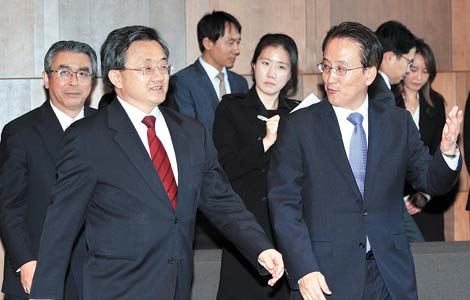
BEIJING - Anticipation of land reform is running high in China, where a unique land system has hobbled urbanization.
Whether farmers will be granted the right to more money through trading their land is key to revitalizing the rural economy and speeding up urbanization the government has been pushing for years.
Details of land reform are widely expected to emerge from the upcoming third plenary session of the 18th Communist Party of China Central Committee.
The land system is a fundamental institution that affects a country's overall economic development. The ruling party's decisions on the land reform will change the current land laws and regulations, said Zheng Fengtian, vice-dean of the School of Agricultural Economics and Rural Development at Renmin University of China.
According to Chinese law, urban land is owned by the state and rural land is under collective ownership. Farmers use the land but have no right to sell or develop it.
Since the 1990s, the property market has flourished in cities and has been a major engine of growth, while ownership rules for rural land have not changed in decades, constricting rural development.
Urbanization means hundreds of millions of farmers leaving the land to work in cities. As the profits from farming are far less than income from working in the cities, much land is now left uncultivated.
Aware of the problems, the government has experimented with new systems for rural land transfer in many regions. Currently, farmers can only lease their land to other farmers or to rural cooperatives.
A vegetable cooperative at Shichaomen village in Southwest China's Chongqing municipality, has more than 1,000 mu (66.7 hectares) of land under cultivation, originating from almost 700 farmers.
"Rent has risen to more than 600 yuan a year per mu ($98) this year from 400 yuan ($66) in 2009," said He Guoquan, head of the cooperative. "Farmers also share in the dividends."
Restrictions on land transfer limit the rent that farmers can make from their land. With no right to trade the land, those who move to the cities often live precariously, contribute little to domestic demand and do not enjoy the privileges of urban resident because of their rural origins.








